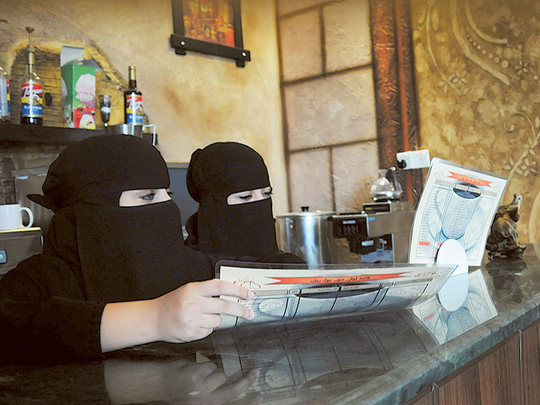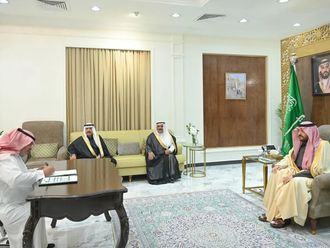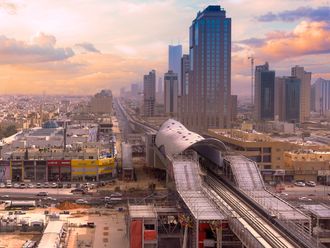
New York: Claudia Goldin, a Harvard professor, is not just an expert on working women. As one of the nation’s most prominent economists, she also exemplifies the growing stature and independence of women in American society. So it was unusual to find Goldin covered in an abaya while meeting in Saudi Arabia not long ago with government officials in an opulent hotel that offered male-only seating areas and forbade women from using its spa.
Her trip was part of an effort by a group of star academics who have taken on a project with the Saudi government aimed at helping women there overcome hurdles that prevent them from getting jobs. For the professors — women who have researched the female struggle to advance in the American workforce — the situation offers more than culture shock. It presents a chance to step back in time.
“It’s almost this stereotype of the way we were,” Goldin said. “It’s even more than that — because it’s the way we were, on steroids, with a lot of luxury goods. It’s an extreme version.”
Saudi Arabia’s oil reserves have helped make it one of the wealthiest countries in the Gulf region. At the same time, the country is socially conservative, with rigid cultural attitudes and restrictions on women that include preventing them from driving.
Goldin, who has written academic papers such as “From the Valley to the Summit: A Brief History of the Quiet Revolution that Transformed Women’s Work,” is now turning her attention from a nation with one of the highest rates of working women to a nation with one of the lowest. In doing so, she and others on the team are trying to understand how Saudi women can overcome the barriers to working — within the nation’s cultural context.
“I think of it as being on Star Trek,” Goldin said. “I’m helping another planet, but I’m having nothing to do with their culture. I’m accepting of their culture.”
During their time in the capital city of Riyadh, Goldin noted, she and her colleagues were treated with respect. She sat next to the Saudi labour minister at a dinner and even held a menacing falcon in a nation where falconry, the “sport of kings,” is the manliest of hobbies.
Saudi Arabia is home to 20 million Saudi citizens, as well as several million foreigners. As of last year, roughly 680,0000 Saudi women were employed, less than 11 per cent of adult women, in contrast to about four million Saudi men at work, or 60 per cent, according to government figures.
Maha K. Taibah, adviser to the Saudi minister of labour on human capital development, says that the government hopes to double the number of working women over the next few years. Policies to do so include building day care facilities near job sites and creating jobs for women in sectors like health care, manufacturing and information technology.
“Currently in Saudi Arabia, women perceive staying at home as the default,” Maha said. “Our programmes at the ministry are eager to change that default to staying at home as an option among other options that may fulfil women’s aspirations.”
The Saudi labour ministry has enlisted Harvard’s Kennedy School of Government to help find more jobs for women as part of a broad project to get more Saudis, men and women, to work in a nation that has long relied on a foreign workforce in the private sector.
Ambitious
“It’s unprecedented how big and ambitious this is,” said Jennifer Peck, an economics professor at Swarthmore College, who is working on the project with the Kennedy School.
The effort to find jobs for women could have big implications for Saudi society, which is why it is bound to stir controversy among the more traditional elements of the kingdom. If more women join the workforce, overall attitudes about them could begin to change, much the same as happened in the United States decades ago when women went to work in huge numbers, said Patricia Cortes, associate professor of markets, public policy and law at Boston University.
“Changes in the labour market pushed changes in norms or beliefs,” said Cortes, who is working on the project with Goldin.
It is clear many more Saudi women want to work; about a third of those with bachelor’s degrees report being unable to find a job. Many educated women say they are frustrated that they cannot put newly acquired knowledge and skills to work.
“On average, they are better schooled than men, but they have no labour market experience and no idea what you need to do to get a job,” said Steffen Hertog, an associate professor of comparative politics at the London School of Economics who is also working with the Kennedy School.
The Kennedy School and the Saudi labour ministry are analysing data on the Saudi labour market and trying to come up with solutions for matching women to jobs, said Rohini Pande, a leader of the project.
Others involved in the project include Marianne Bertrand, an economist at the University of Chicago.
The project is an unusual one for researchers like Goldin who have spent their careers looking backward in history.
“I don’t generally do stuff in real time,” Goldin said. “I do stuff from decades ago.”
Goldin is waiting on the Saudi government for economic data on families: who earns the money, how much they earn, where they live.
“We in the US have these answers in the current population survey of the census,” Goldin said.
Echoes of America’s economic and political struggles are apparent in the work the researchers are carrying out.
For instance, Goldin and her research partners are working on how to evaluate a government plan to hire more Saudi women for retail jobs in stores that sell lingerie, perfume and women’s clothing. The challenge is complex.
Some women in Saudi Arabia are reluctant to take the jobs, viewed as foreigners’ work. But the bigger problem is getting to work.
Saudi officials have created a pilot programme to offer transportation subsidies for taxis to women taking new jobs at one of Riyadh’s shopping malls. But the cost of expanding that programme could be so expensive that government officials might as well create a public transit system. But would they need special, women-only buses? Or would women be relegated to the backs of buses?
Several dozen women last year operated vehicles in public in Riyadh, a move that was celebrated in October with anniversary protests and a social media campaign.
Goldin says she is accustomed to striking a detached, objective tone familiar to academia, but the work on Saudi women borders on activism, a notion she has yet to come to terms with.
“It could be seen that way, but we’ve had no interactions with women who want jobs, only with people who are world travellers or are members of the government,” she said. “To the extent that is an activist role, it’s a very odd one.”
- New York Times News Service











